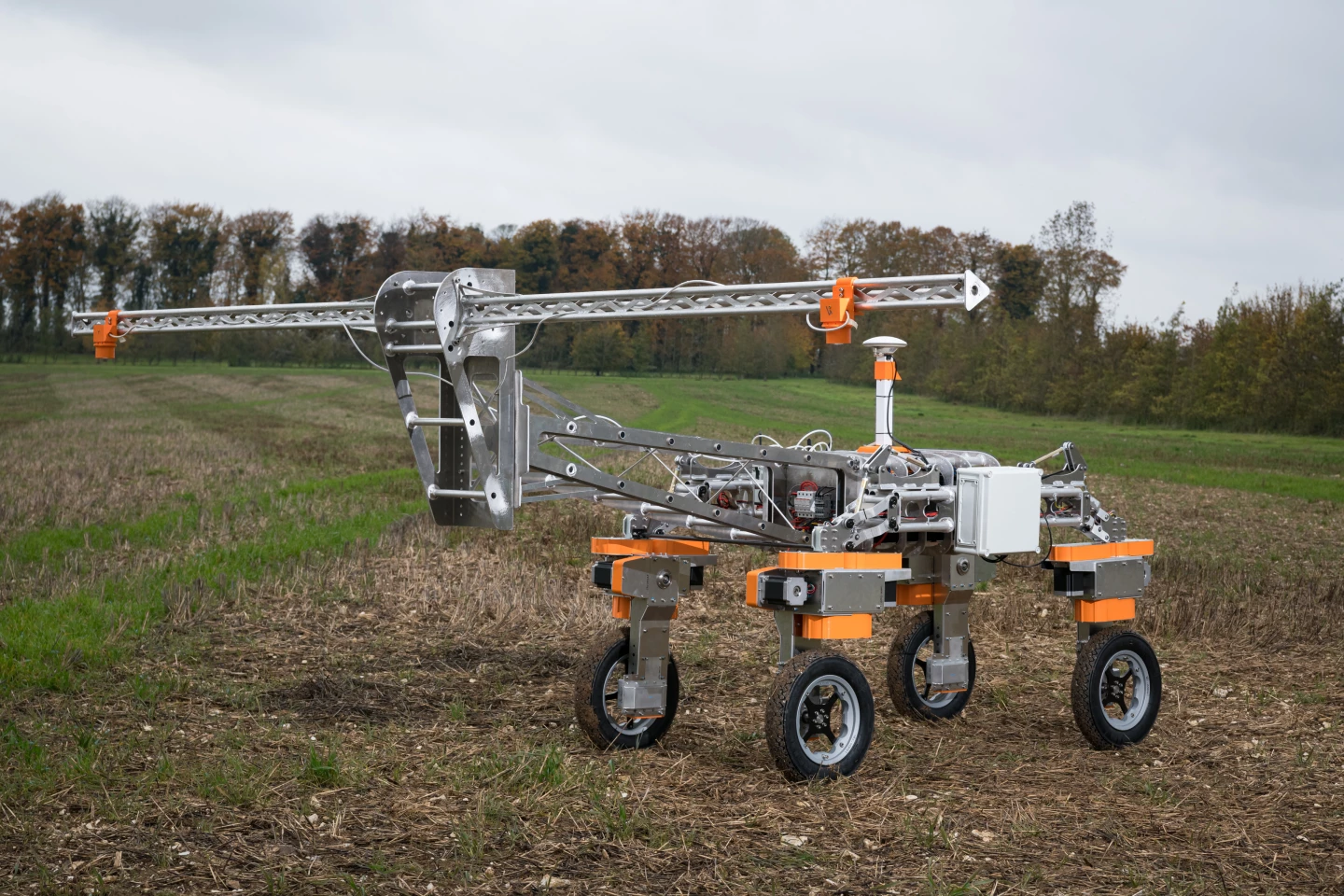As anyone with a garden can attest, keeping on top of weed growth can be difficult, but the problem is far more onerous for farmers raising large-scale crops for harvest. A new robot to be trialed next year could help them keep on top of things, however, by hunting down and killing unwanted plants with zaps of electricity.
The new droid is the handiwork of British startup Small Robot Company, who last year introduced a trio of miniature robots called Tom, Dick and Harry. These were built to automate certain farming tasks, making things more cost-effective and sustainable in the process.
Tom is a weed-mapping robot, covering up to 20 hectares (50 ac) a day using autonomous navigation and an onboard camera to tell plants from weeds at a sub-millimeter resolution. Harry is fitted with a drill and is designed to sow seeds with high precision, recording what types are placed where to offer users a crop-wide map of plant population.

Small Robot Company has now shared some new details on Dick, perhaps the most ambitious robot of the lot. It leverages a commercially available weed-killing technology developed by fellow UK startup Rootwave, which uses electricity to boil weeds from the inside out, and from the root upwards.
The main benefit of these "lightning strikes" is that the approach avoids the use of chemicals entirely, better protecting biodiversity and the quality of the soil for future farmers. The idea is that Tom would first create a map of the crop and identify the weeds, and Dick would then be sent in to neutralize the threat, using its autonomous navigation systems and data gathered by Tom to sniff out the weeds.
“This is truly a world-first,” says Sam Watson-Jones, co-founder, Small Robot Company. “For the first time, we can see each plant in the field – and every single weed. Instead of spraying the whole field, we can simply zap the individual weeds. Farmers are integral to the environmental solution. It’s crucial that we're working on farm to develop our technology, to ensure it delivers real benefits in field. Together, we're creating the ultimate sustainable farming model."
The weed-destroying robots are set to be trialed on 20 UK farms across 2020 in partnership with the National Trust Wimpole Estate and Waitrose Leckford Estate. The Small Robot Company hopes to offer a commercial service in 2021.
Source: Small Robot Company





